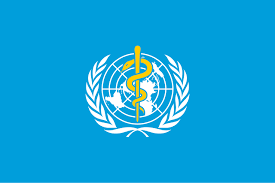
WHO Urges South-East Asia to Accelerate Efforts to End TB
The World Health Organization (WHO) has called on Member States in the South-East Asia Region to intensify efforts to eradicate tuberculosis (TB), urging a comprehensive, multi-sectoral approach led by top political leadership. The WHO emphasizes the importance of addressing socio-economic determinants of TB and reaching every affected and at-risk individual to mitigate the disease's impact.
“A primary health care-based approach that addresses TB determinants such as undernutrition, embraces new technologies, including developments in the field of Artificial Intelligence, and has communities and affected populations at the center of all efforts, should be among the key elements of our reinvigorated approach,” said Saima Wazed, Regional Director of the WHO South-East Asia Region.
Significant Progress but Persistent Challenges
The Global TB Report 2024, published by the WHO, highlights progress in the region. In 2023, over 3.8 million people in the South-East Asia Region were initiated on TB treatment—the highest ever recorded and a notable increase of nearly 1.3 million from 2020, when the COVID-19 pandemic disrupted health services.
Additionally, the percentage of people with TB missed by national programs has declined dramatically, from 44% in 2020 to 22% in 2023. TB-related deaths also decreased significantly to 583,000 in 2023, down from a peak of 763,000 in 2021.
However, the region remains disproportionately affected, accounting for 45% of the global TB burden. An estimated 5 million individuals developed TB in 2023, and over half of global TB deaths occurred within the region. Preventive treatment coverage also remains alarmingly low, with only 9% of people living with HIV and less than a quarter of household contacts of bacteriologically confirmed TB patients receiving necessary care.
Funding and Socio-Economic Barriers
The financial resources allocated for TB control in the region reached $1.1 billion in 2023, a steady 70% increase from domestic funding sources. However, this falls far short of the $3 billion required annually to implement a comprehensive TB eradication strategy.
Saima Wazed stressed the urgent need for intensified action, noting the socio-economic toll of the disease and the existing resource gaps. “The huge disease burden, its catastrophic socio-economic impact, and severe resource crunch call for accelerated and urgent actions. Multisectoral, multidisciplinary collaboration and pooling of resources are vital to leave no one behind and reach every TB-affected person, their families, and those at risk, irrespective of where they live,” she said.
Reaching vulnerable and marginalized populations remains a cornerstone of the WHO’s fight against TB.
Renewed Global Commitment
Momentum for TB eradication has been building in the region. On August 18, 2023, Member States adopted the Gandhinagar Declaration, pledging to amplify efforts to eliminate TB. The initiative gained further traction on September 22, 2023, during the second United Nations high-level meeting on TB, where world leaders adopted a historic declaration.
This declaration commits to ambitious, time-bound targets aimed at equitable access to TB services, safeguarding human rights, addressing TB determinants, reducing vulnerabilities, fostering research and innovation, and mobilizing adequate resources.
“It is time to push the pedal on the momentum built collectively by the Member countries of the region in efforts towards ending TB,” Wazed emphasized.
Path Forward
With an integrated approach leveraging technological advancements, community involvement, and stronger primary healthcare systems, the South-East Asia Region is poised to accelerate its fight against TB. While progress has been significant, intensified action is crucial to eliminate this public health threat and ensure no one is left behind in the journey toward a TB-free world.